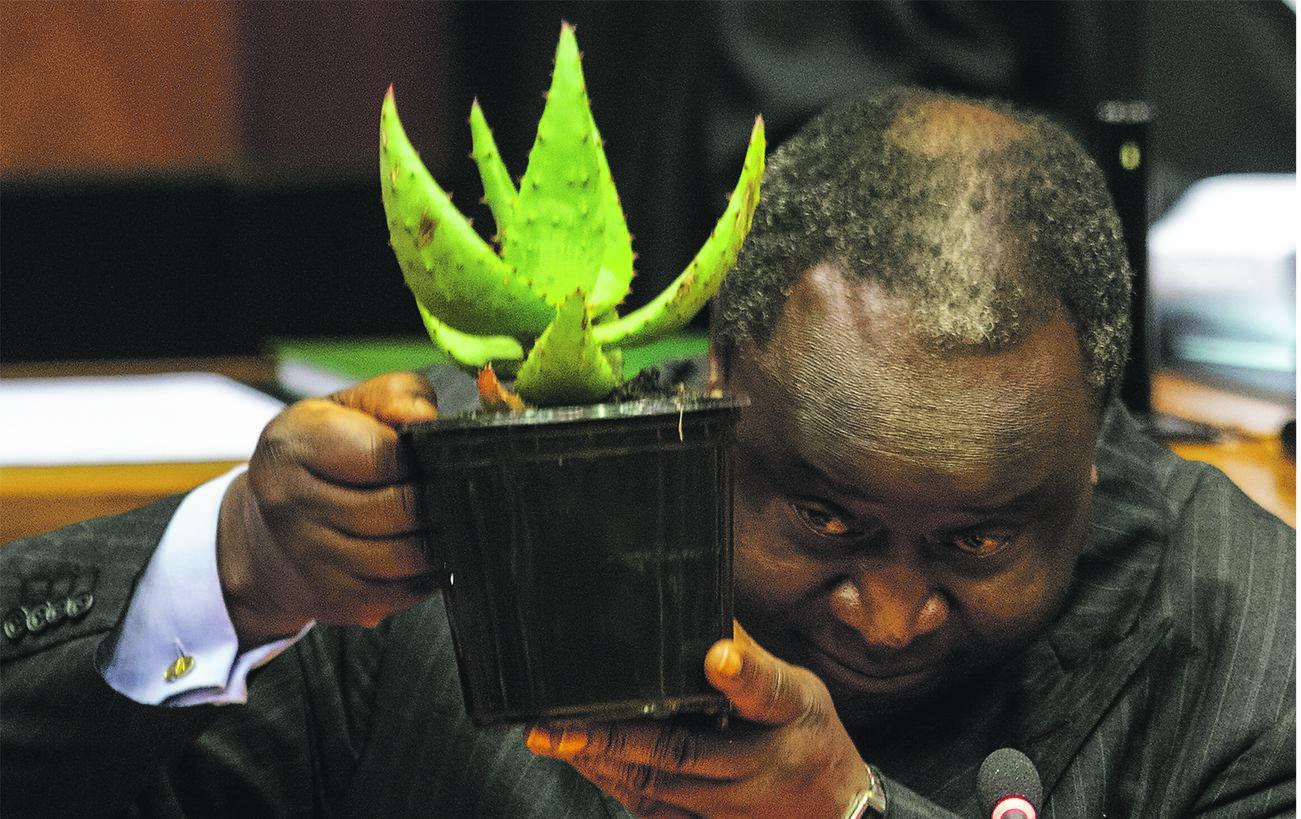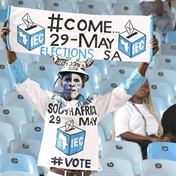
We dislodged the apartheid government through dialogue after many years of struggle. We must stay true to our cause
The easiest way to answer to the finance minister’s mini budget speech is to criticise him, dismiss his speech as nothing but cheap talk and to threaten war if he implements the measures he proposed.
It is easier to pick and choose what we agree with and to remind him of the constant government failures.
We can use populism to discredit his speech and demand more than what he has said.
Not that we will be wrong.
But as we do so, do we give constructive input and proposals to address the issues we all agree on as the toxin in our lives?
As we continue with this approach, our woes are not getting any better.
The minister’s mini budget might not be good enough. However, it confirms the realities of our time.
As we disagree on his measures, we are required to come with some national consensus based on the reality.
Our country has become poorer than her poverty-stricken people.
This means there will be more people living far below the poverty line than we already have.
It means that there will be more people with fewer prospects of getting a job and more on our social security system.
We are looking back 25 years to when we inherited a corrupted and bankrupt government.
We are looking back 20 years to when we offered public servants voluntary severance packages to reduce the public service wage bill and spearhead transformation.
At that stage, we had a huge apartheid government debt which we had to service. We had to extend services to the previously disadvantaged.
We had to ensure that the members of the black majority benefited from social grants as did their counterparts of the other races.
We had to build more schools and facilitate national reconciliation.
As we did the above and many other things as part of ushering in our new democratic order, we administered doses of hope to millions of people who previously carried the yoke of apartheid.
We encouraged them to believe that a better life was upon them with the demise of apartheid.
We took them through a journey of dismantling the vestiges of apartheid and made them believe that their children and grandchildren would live a better life thereafter.
The apartheid state and its apologists tried unsuccessfully to resist and undermine the will of the people, including creating artificial conflicts which claimed the lives of many.
Many had already given their lives in pursuit of a better future and a better country.
But because it was worth the price, those who were on the receiving end of apartheid developed a skin thick enough to appreciate that their Rome would not be built in one day.
They embraced the notion of a nation and a country meant for all in accordance with the dictates of our liberation struggle.
Fast-forward to 25 years later, and our country is gripped with the very social ill against which our forebears fought so hard and for which they laid down their lives.
Our economy is in ruins; poverty, inequality and unemployment are at a high.
Racism has reared its ugly head again without apartheid laws and signs of the past. Some of our leaders have perfected the art of destroying a country and our nation.
The artificial wars similar to those during apartheid and the transition from apartheid have been reinvented.
We are in the mode of the disagreement as we were during apartheid and the transition to democracy.
Our people have to remain eternal optimists and live the same hope as during the transition.
The finance minister has used the metaphor of an aloe.
He sought to inject a sense of courage and hope arguing that we have toiled amid adversity in the hope of better days.
As he did so, he delivered the sad news we all knew about but never wanted to hear.
As he put it: “Our expenditure continues to exceed our revenue. Our national debt is increasing at an unsustainable pace.”
Then came the real punchline n his speech: “Over time, the country would likely face mounting debt service costs and higher interest rates and might enter a debt trap. The unemployment crisis would worsen and government debt would balloon.”
This message cannot give comfort to those already trapped in poverty, inequality and unemployment.
It is a real crisis which must by all means be averted.
It is true that we must avert this potential calamity. The question which has still not been properly answered is what must happen to avoid this crisis?
We might agree as a nation as to who caused our calamity and/or what caused it. Where we seem unable to find each other is what must be done and who must do what.
One of the major challenges of our nation is its propensity not to take and accept responsibility at all.
The character of our society is one that expects things to happen without lifting a finger. We have a tendency to differ on everything and do nothing to change our woes.
As long as no one sees any role they must play to contribute towards resolving our crisis, the more difficult the future will be.
Certain of our communities will continue to use their vote as a tool to blackmail government and leverage their justification not to pay for services.
These communities have found a creative way to avoid their basic civic responsibility to contribute towards the benefits they derive from services provided by government.
The affluent and those who can afford to make a financial contribution have elected not to.
The private sector, like certain communities who use the threat of a vote to extort concessions, is forever hyperactive in deferring their civic responsibilities.
The private sector, which is in fact the biggest beneficiary of the economic system and market friendly policies, will not come to the party and partner with this nation in good faith.
What everyone misses in this equation is that in the present circumstances and to avert what the minister spoke about, every little effort counts in restoring not only the hope but the wishes of the majority who remain trapped in poverty.
The sadness of our situation is that there are already clear signs of resistance and possible rebellion to what the minister has proposed.
There is no doubt that something must give to usher in a new era which will make us realise our dream of a better life for all.
But it requires that our energies be channelled in the right direction and for the right purpose and reason.
There is no doubt that fighting corruption and mismanagement, and being prudent in handling our state affairs must take first priority.
In equal measure society must position itself to play a real meaningful role in bringing about the change we need.
It is convenient to argue that our government failed us in many ways. That might well be true.
However, is it enough to limit our contribution to complaining about the failings and not contribute towards addressing these failings?
There is reality that we continue to fail to have a meaningful dialogue about what we need as a collective effort and contribution to address our major challenges.
The debates we are having today are almost recycled debates which have not taken us anywhere. We seem not to have learnt any lessons from what created our current problems.
But we also seem to have not learnt any lessons in taking responsibility as a people for our own destiny.
The fact that we continue on the trajectory of the us-and-them in relation to our government remains a major national headache.
Political parties and other organisations continue to see opportunities for relevance instead of opportunities for meaningful engagement in the public and national interest.
Engaging with and contributing meaningfully does not mean agreement.
However, the failure to reach a national consensus on at least two or three issues raises questions about our good faith in bettering our country.
When the affluent agitate for a rebellion in the name of the poor and under the pretext of supporting the poor, then the war is already lost.
Those from whatever quarter who claim to speak for the poor and to be championing the cause of the poor might not be that honest even to themselves.
It is in this moment in our life as a nation that we must see the true test of patriotism by those who govern our country, their opponents and those who claim to be society’s watchdogs.
We dislodged the apartheid government through dialogue after many years of struggle.
We must stay true to our cause when this country faces the prospect of a junk nation.
Modidima Mannya is an advocate, writer and executive director for legal services at the University of SA




 Publications
Publications
 Partners
Partners









